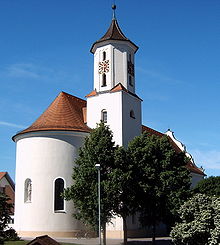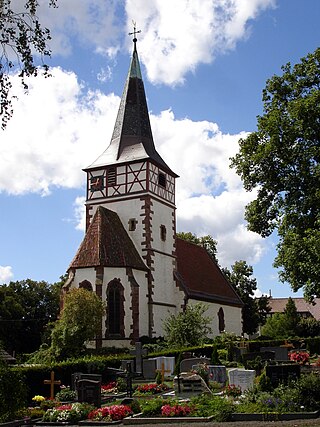
Ditzingen is a town in the district of Ludwigsburg, Baden-Württemberg, Germany. It is located approximately 10 km northwest of Stuttgart, and 12 km southwest of Ludwigsburg. The Hirschlanden transmitter was located near Ditzingen-Hirschlanden. Ditzingen is the home of Bürger GmbH, Reclam and also Trumpf GmbH.

Wiesensteig is a town in the district of Göppingen in Baden-Württemberg in southern Germany. It is located on the river Fils, 16 km south of Göppingen.

Adelmannsfelden is a municipality in the German state of Baden-Württemberg, in Ostalbkreis district.
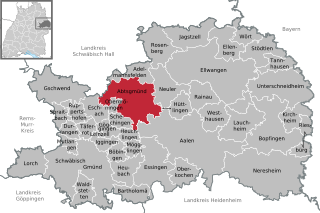
Abtsgmünd is a municipality in the German state of Baden-Württemberg, in Ostalbkreis district. Abtsgmünd is located at the confluence of two streams, the Lein and the Kocher. The large area municipality consists of the main town of Abtsgmünd as well as the five districts of Neubronn, Laubach, Untergröningen, Hohenstadt and Pommertsweiler and their associated villages and hamlets. The municipality is a state-recognized recreation area in the Swabian-Franconian Forest Nature Park.

Gschwend is a town in the German state of Baden-Württemberg, in Ostalbkreis district.

Eschach is a municipality in the German state of Baden-Württemberg, in Ostalbkreis district.

Bösingen is a municipality in the district of Rottweil, in Baden-Württemberg, Germany.

Dietingen is a municipality in the district of Rottweil, in Baden-Württemberg, Germany.
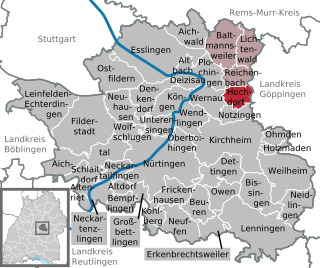
Hochdorf is a municipality in the district of Esslingen, Baden-Württemberg, in southern Germany. The mayors are Roland Erhardt and Gerhart Kuttler.
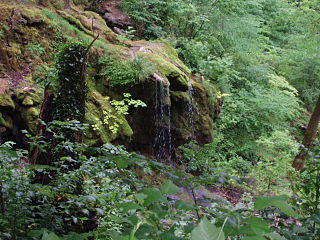
Neidlingen is a municipality in the district of Esslingen, in Baden-Württemberg, Germany.
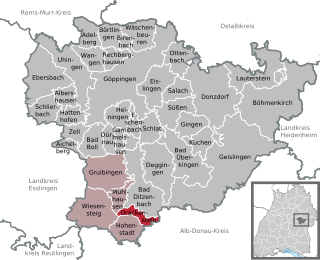
Drackenstein is a municipality in the district of Göppingen in Baden-Württemberg in southern Germany.

Eschenbach is a municipality in the district of Göppingen in Baden-Württemberg in Germany.

Hattenhofen is a municipality in the district of Göppingen in Baden-Württemberg in southern Germany.
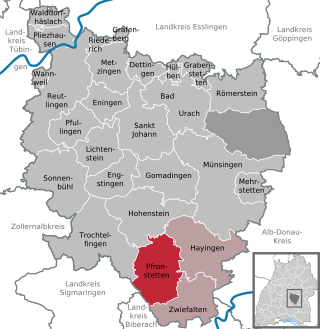
Pfronstetten is a town in the district of Reutlingen in Baden-Württemberg in Germany.
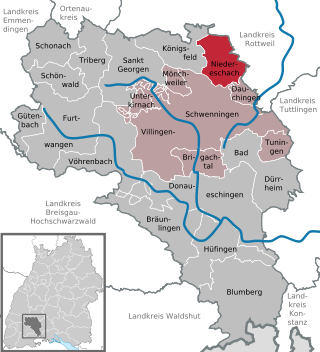
Niedereschach is a town, with 6000 inhabitants, in the district of Schwarzwald-Baar in Baden-Württemberg in Germany.
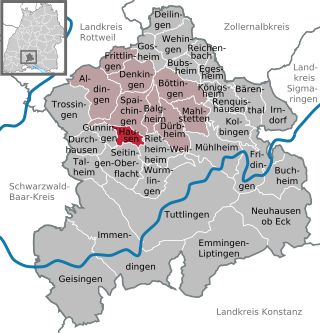
Hausen ob Verena is a municipality in the district of Tuttlingen in Baden-Württemberg in Germany.

Reichenbach is a municipality in the district of Tuttlingen in Baden-Württemberg in Germany.

Hüttlingen is a municipality in the German state of Baden-Württemberg, in Ostalbkreis district.
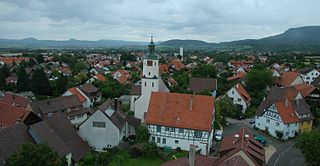
Dürnau is a municipality in the district of Göppingen in Baden-Württemberg in southern Germany.

Hertenstein Castle is a ruined spur castle approximately 900 metres southwest of the village of Billingsbach, part of the municipality of Blaufelden, in the district of Schwäbisch Hall in the state of Baden-Württemberg, Germany.




